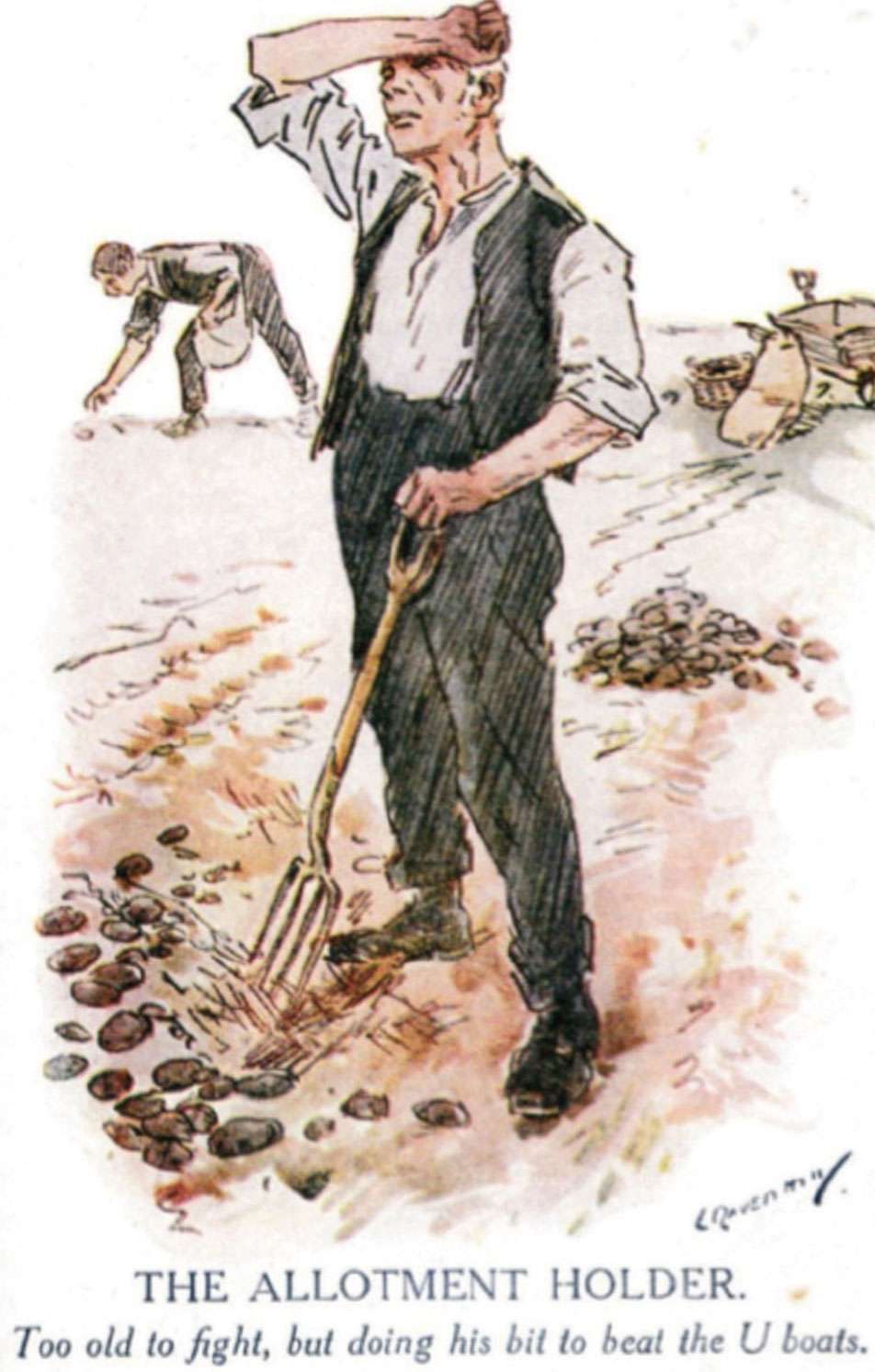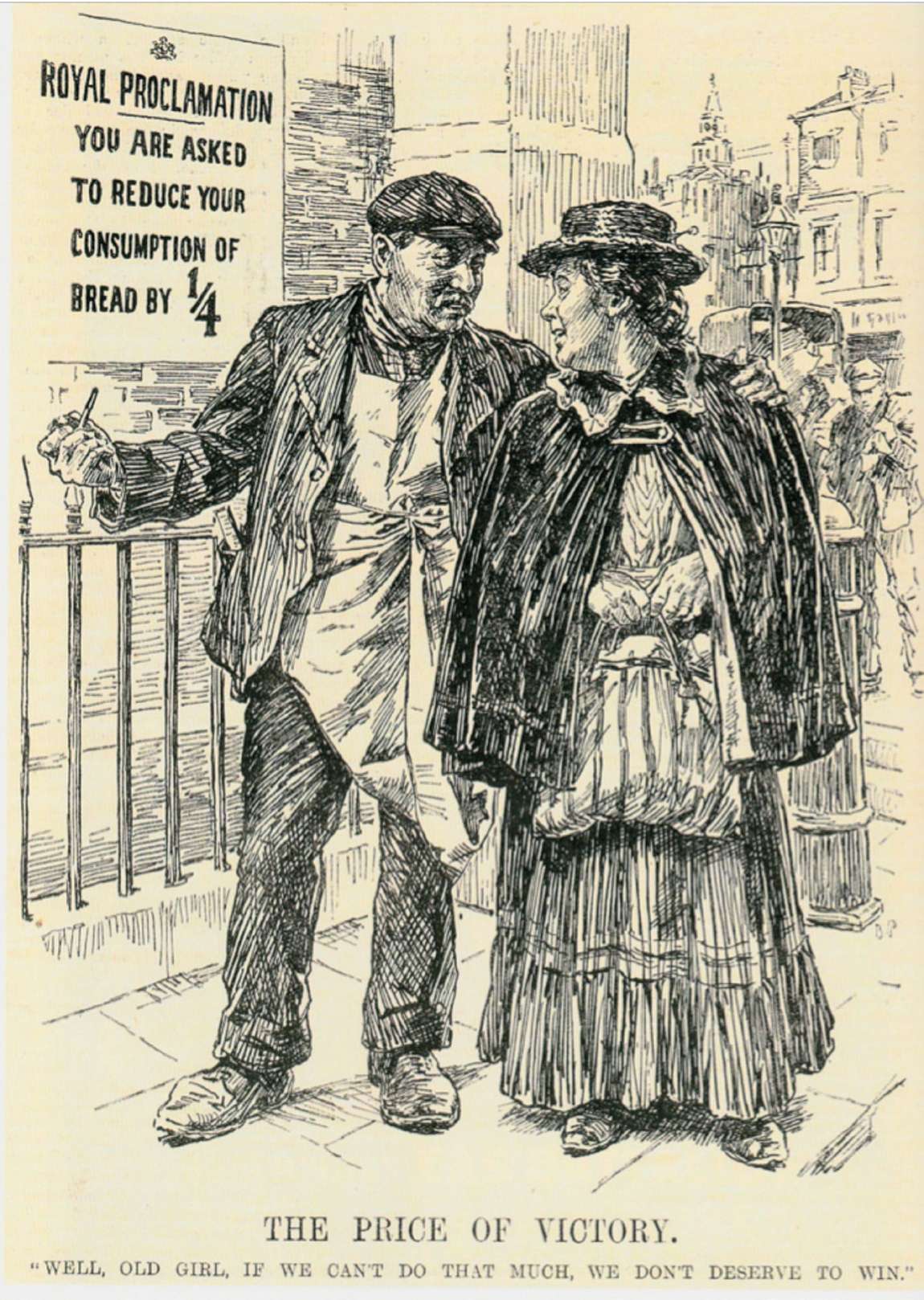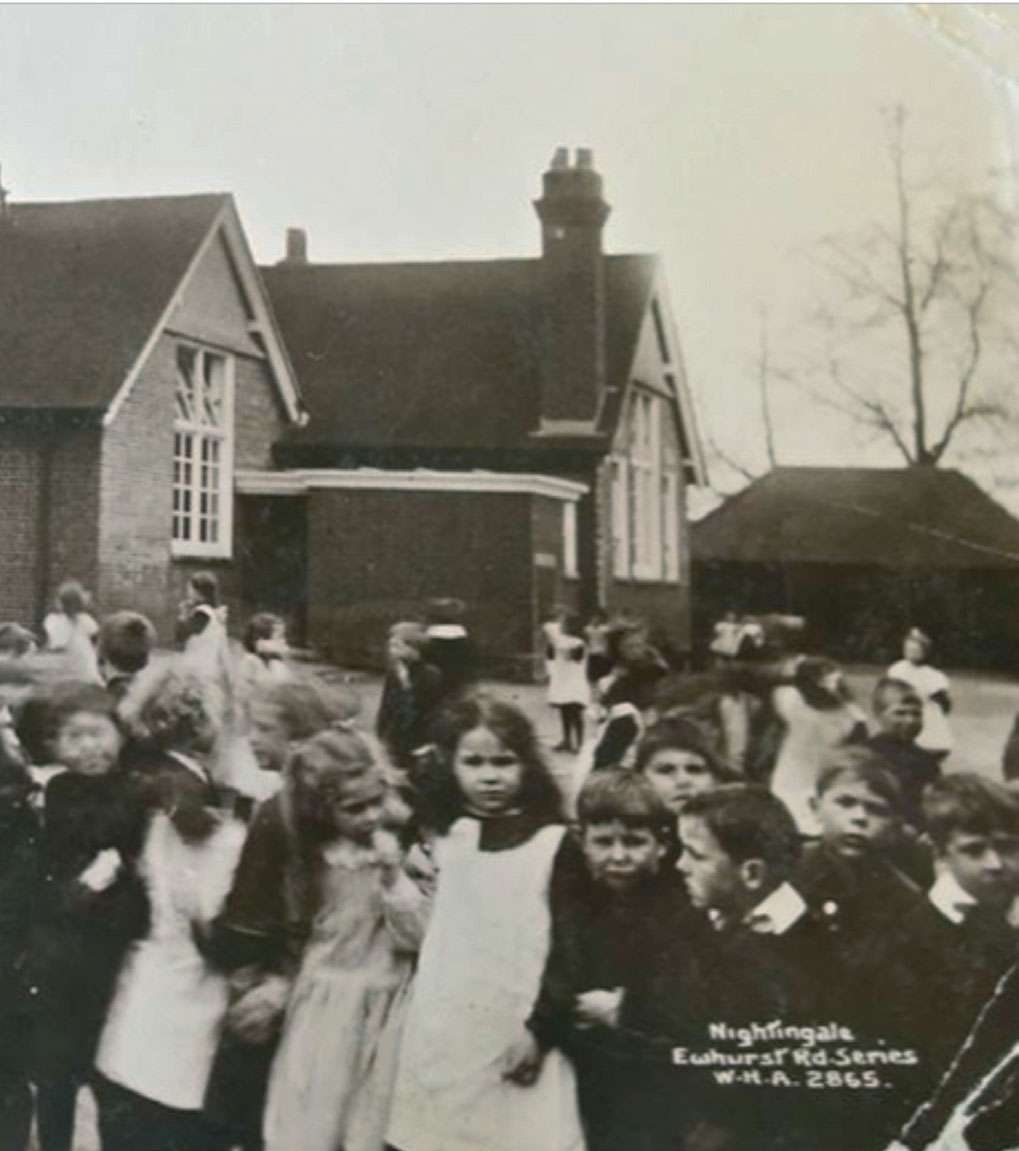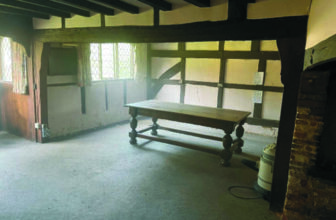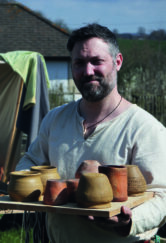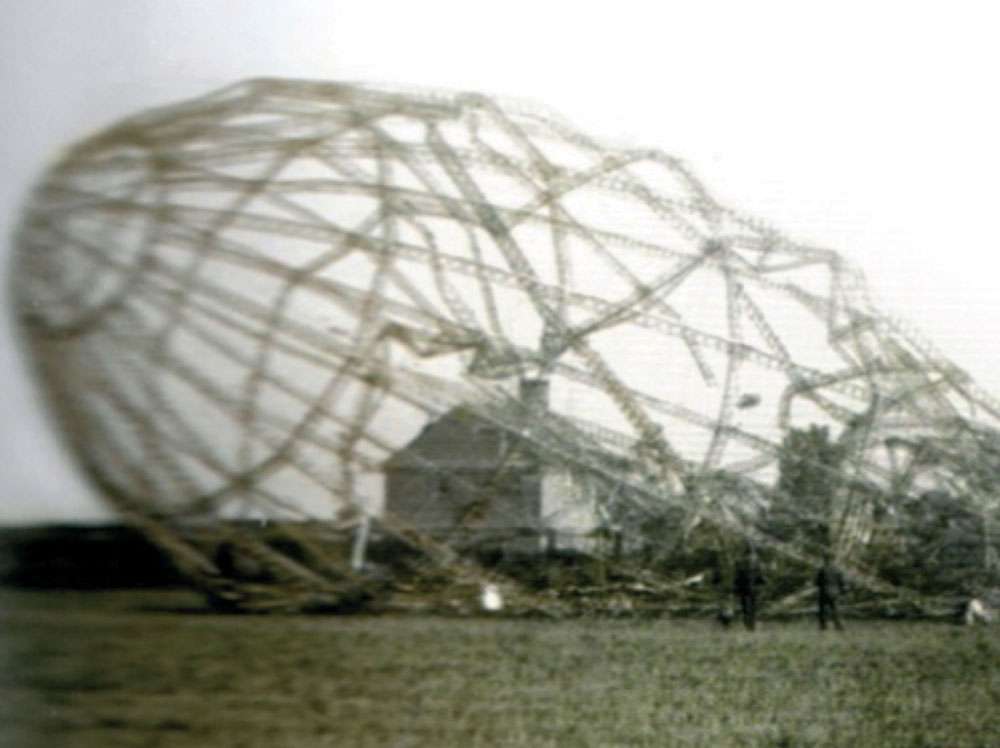
Food still dominated the news this month. At the beginning of the War, 60% of food had been imported, and Imperial Germany realised the possibility of starving Britain into submission. U- boats targeted any ship likely to be carrying food, and were successful in sinking huge tonnages of shipping. Now the food shortage was being felt. At Kingston, a quarter-mile queue for potatoes was reported. A proclamation by King George V was read out in churches on four successive Sundays. This urged people ‘to practise the greatest economy and frugality in the use of every species of grain’. They should aim to ‘reduce the consumption of bread by at least one fourth’.
(Pictured Above: Poster issued in Lincolnshire encouraging voluntary rationing)
Official bodies at every level reinforced this message. The government appealed for more land to be ploughed, promising to make available additional tractors and manures. The Surrey War Agriculture Committee encouraged potato growing. ‘There is no crop commonly grown in this country which yields so much human food per acre.’ The rent of allotments was reduced.
(Pictured Above: Planting potatoes supplied by the government (Postcard by the National War Savings Committee))
The Cranleigh Parish Council ordered a potato sprayer for use in the parish. People were to apply to Mr H.E. Pryke, clerk to the parish council, at 1 Bank Buildings. The committee of the Cranleigh Horticultural Society decided that the usual flower show would not be held this summer: instead, there would be an exhibition of vegetables in September. Grow food, not flowers, was the message.
(Pictured Above: Punch Cartoon)
A public meeting organised by the Parish Council was held at the Cinema Hall on Thursday May 24th to consider ‘Food Economy’. Sir George Bonham of Knowle declared that there had ‘never been such a crisis in our history’ and Sir Charles Chadwyck Healey of Wyphurst exhorted people to ‘make a determined stand against waste at home’. It was urged that people should sign a pledge to use all possible food economy, and to put it in their window.
More practically, the managers of the village school experimented with giving schoolchildren a midday meal. For a cost of 2d, 351 children were given ‘barley stew, with flaked maize pudding afterwards’. In case you wondered, ‘they very much enjoyed it’.
Local farmers donated livestock in aid of the Red Cross and held a large auction at Guildford market. It was a big success, raising the huge sum of £2,850. Besides animals, relics of one of the crashed Zeppelins were sold, in small pieces, priced between 6d and 1s. They ‘sold as fast as hot cakes’.
The Cranleigh History Society meets on the 2nd Thursday of each month at 8.00pm in the Band Room. The next meeting will be on Thursday May 11th, when Michael Edwards’s subject is ‘Edwin Lutyens’.


